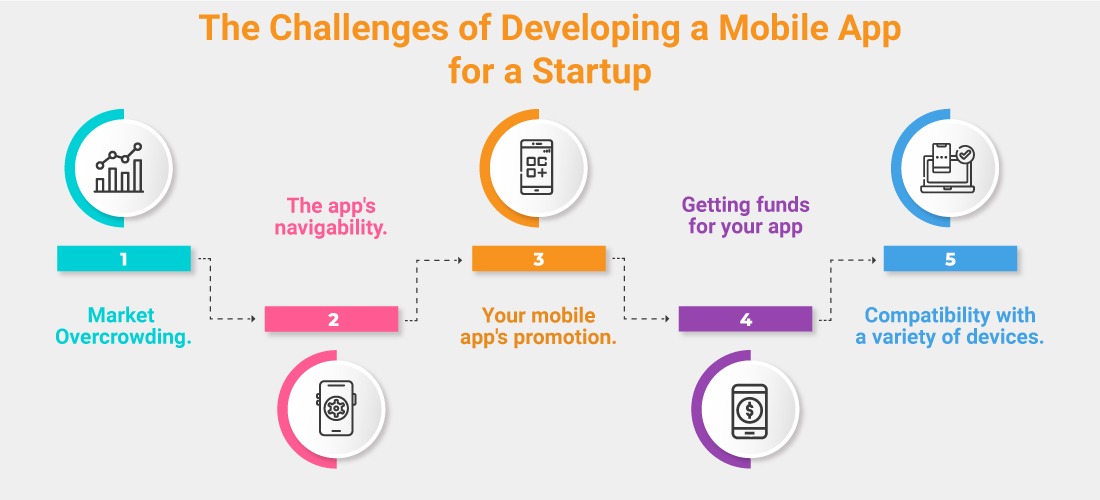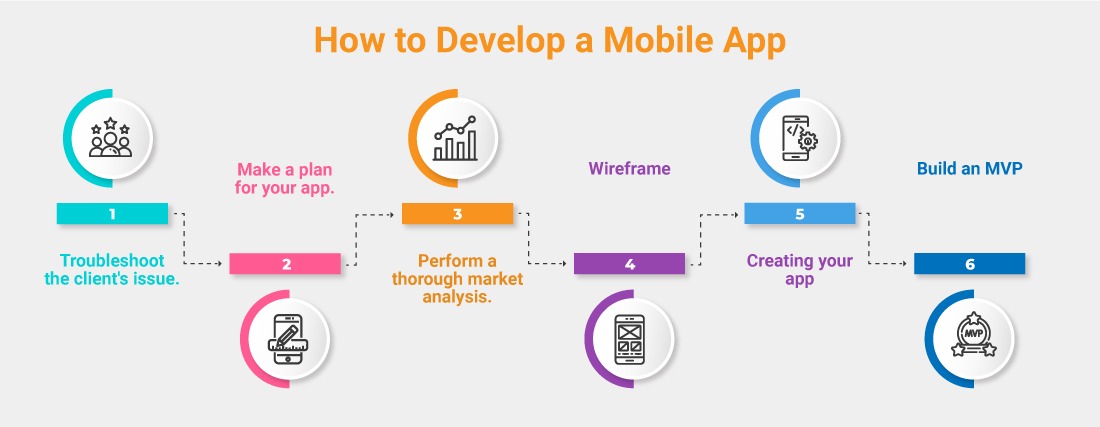App Development Process: Apps are a major business in the present digital craze. When compared to the web app, mobile app adoption is rapidly expanding.
When compared to accessing a website, end-users are more glued to utilizing an app.
Analyzing the fact that business owners have shifted their focus to employing mobile apps to place their company in their customers’ pockets.
Business owners, to compete with their competition, must have an online presence, according to the changing trend.
The app development strategy of a startup differs significantly from that of a well-established company.
On the one hand, established companies typically have sufficient cash and a shorter time to market; their primary aim is to release a bug-free, high-quality app.
Startups, on the other hand, want to get their product out in a short amount of time while maintaining its quality and keeping its mobile app development costs cheap.
What did Do Enterprise Companies expect From App Development Companies?
They simply want a high-quality product that is free of bugs, delivered on time, and, most importantly, is cost-effective.
To achieve a successful product launch, app development companies should adhere to certain principles and criteria.
Thinking about developing an online identity with a mobile app will help you stay competitive and enhance user engagement in the long run.
There are various stages in the app’s life cycle before it is released.
Working in small increments improves and simplifies the development process.
In this post, we’ll look at the problems of app development for startups, so you can get a better understanding of the mobile app development process for startups and launch a successful app more effectively.
Based on our previous experiences,
Startup Challenges in Mobile App Development Process

Overcrowding in the Mobile App Development Market
There are millions of smartphone apps available on the market, which is not a secret.
Almost everything has its app. Converting a mobile app idea for startups into a truly original app that stands out from the crowd is the toughest difficulty for app developers.
Your app may have a beautiful user experience, but how you advertise it is the most important component in its success.
You should analyze the market and identify your target users as the best solution to start app development process.
Make a list of everything they will require. Determine the issue that your app will address for the users.
Will they tell their friends about your app if they have an issue like yours?
Your App’s Funding
A startup’s ability to fund a mobile app is difficult. The cost of developing and launching a mobile app for a firm might range from $2,500 and $200,000.
You must develop a finance strategy for your app.
You may need to find the proper investor and then explain the mechanics of your mobile app as well as the potential for a return on investment.
There are a number of internet platforms, such as Kickstarter and Appbackr, that may help you raise funding for your mobile app idea and turn it into a reality.
Across a Wide Range of Devices
Every day, the world of technology expands, and new devices are introduced on a regular basis.
To retain your brand image, you must fit across all available devices.
As a startup, you may have difficulties in ensuring that your app is compatible with all devices.
All limitations, such as screen resolution and operating system requirements, must be taken into consideration.
When developing an app for a startup, it is critical to consider the app’s responsiveness from the outset. Your beginning mobile app will run smoothly as a result of this.
The App’s Accessibility
The user interface of your program should be basic and intuitive.
Although a developer may deem an app to be straightforward and easy to use, potential users may not, which can result in negative feedback and reviews.
To tackle this difficulty, the Hack is to keep things as simple and straightforward as possible.
In your app, you can include tutorials and instruction manuals.
Your App’s Marketing – App Development Process
In today’s competitive industry, startups face a huge problem when it comes to selling their apps.
Given the presence of other large-scale businesses with bigger budgets and experience, the rivalry is extremely fierce.
To enter the market and advertise your software, you must have a solid strategy in place. You can seek advice from marketing
professionals who have prior experience establishing and promoting apps.
Development of Mobile Apps: A Guide

The Customer’s Issue
As a startup founder, you must first understand the customer’s problem area before beginning to work on any software.
Because once you’re familiar with the problem, you’ll be able to come up with the greatest possible solution through your app design.
This phase in the analysis will put you ahead of the competition.
Wireframe -App Development Process
You must develop the app’s architectural blueprint for showing photographs on the screen as well as its functionality throughout this step.
Wireframing your app allows you to visualize how your app will appear and work in your head. It offers a picture of how the user
would use the app by clearly illustrating the various screens and their contents.
Make an MVP (minimum viable product)
Startups should avoid being fixated on the idea of producing perfect software with all of the necessary features and the best possible user experience.
Instead, they should concentrate on creating a minimum viable product (MVP) (Most Viable Product).
Take a look at every successful app’s success narrative to learn about all of the modifications that were made before the app was named one of the best.
EndNote
The factors listed above will assist you in strategizing and implementing a successful mobile app solution for your startup in order to leverage your business.
Once you’ve devised a strategy, contact us, a top-rated mobile app development process company for startups, who will assist you in turning your app concept into a viable and innovative app.
Read More: SIMPLE STEPS FOR MOBILE APP DEVELOPMENT LIFECYCLE






















